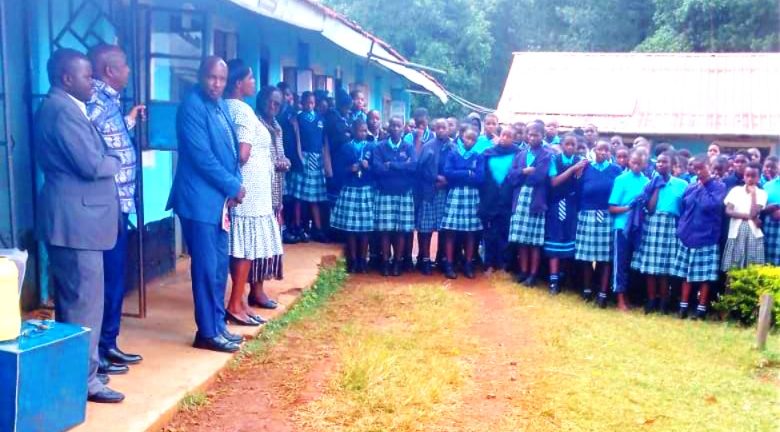An association representing teachers in arid and hardship areas, the Kenya Teachers in Hardship and Arid Areas Welfare Association (KETHAWA), has warn the government over its move to slash hardship allowance terming the move as discriminatory.
WATCH:
The Association National Secretary Wangonya Wangenye noted that the move will affect over 120,000 teachers in 44 counties, calling on the government to do public participation before making any decision.
“We want to tell the government that they have not done consultation and public participation. The money they are intending to reduce for teachers working in hardship and arid areas is already committed by teachers through loans they have taken, and it is going to affect teachers economically and borrowing power.
The move of taking to reduce the hardship allowance, will affect over 120,000 teachers as per our records in 44 counties,” said Wangenye.
ALSO READ:
We’ll down tools if you abolish hardship allowances, KUPPET warns TSC
He added that the government should instead motivate the teachers by increasing the allowances, adding that they will not sit back and see such discrimination being done to those teachers in arid and hardship areas.
“The move of discriminating teachers working in hardship and arid areas is a move that has existed since 1963 when Kenya gain independence and even during colonial time. Instead of bringing normalcy and making sure that these teachers feel part and parcel of equals as other teachers in the republic of Kenya, they are now even wanting to even remove the little coin those teachers get.
Those government officials who are perpetrating that led by TSC and SRC have never worked in those hardship areas. We are warning them that we will never sit back and see that discrimination to our teachers,” he added.
By Roy Hezron
You can also follow our social media pages on Twitter: Education News KE and Facebook: Education News Newspaper for timely updates.
>>> Click here to stay up-to-date with trending regional stories
>>> Click here to read more informed opinions on the country’s education landscape






